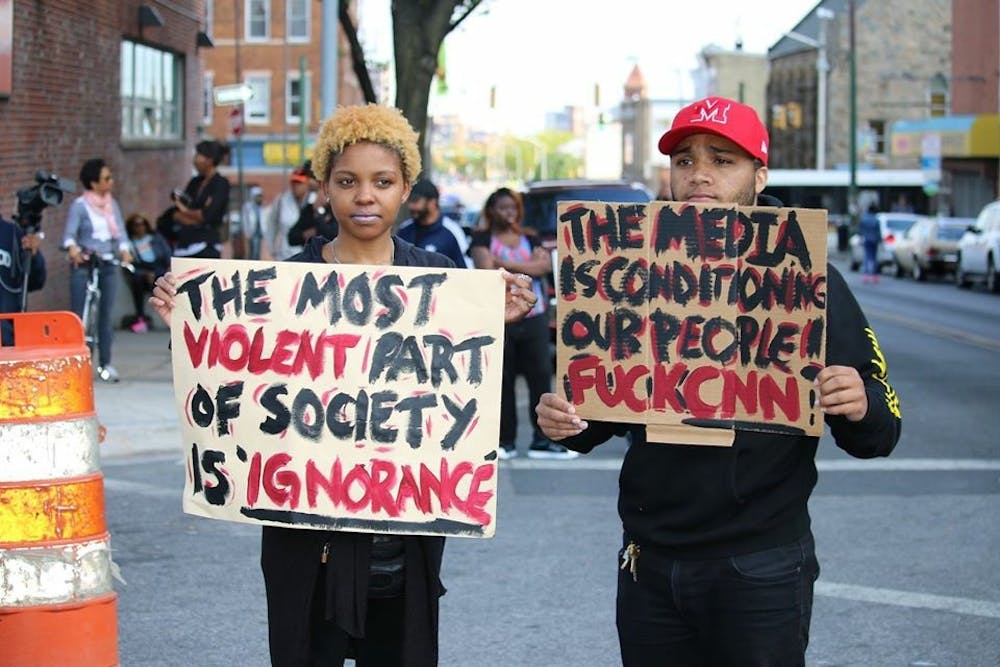Black History Month has been celebrated for the past 45 years in order to promote and remember the African American narrative throughout American history. Hopkins students of color reflected on its importance, especially in the context of current events involving racial equality and Black Lives Matter.
Tiffany Onyejiaka, vice president of the Black Student Union (BSU) at Hopkins, believes that Black History Month is crucial in educating the public about the role that African Americans have played throughout the nation’s history.
“It’s important for everyone to realize how essential African Americans have been to this country, to its founding, to its ongoing success — and I think a lot of people may not have a sound understanding of the impact that African Americans have had in this country’s history,” Onyejiaka said.
She also feels invested in the change and education that Black History Month and theBlack Lives Matter movement can bring to the Hopkins community because of her personal experiences living as an African American woman.
“I have faced racism in my daily life. I have faced racism on campus, from administrators, from teachers, from students. Everyone I know who is black has experienced something,” Onyejiaka said. “I’m a black person, I have a black life. God forbid I’m in the wrong place at the wrong time — my degree won’t save me, my education won’t save me.”
An issue that Onyejiaka holds with Black History Month lies in the implications of its name. She believes that it could possibly limit the visibility of African Americans to just one month.
“I do think the month is important, but the real issue is that a couple people feel like this is the only month that they should care about black people and that every other month they shouldn’t, and that’s where my issues come with it,” Onyejiaka said.
Matt Brown, the BSU’s president, agrees and believes there is a need for the public to recognize that the black historical narrative must be ongoing and continuous and not simply confined to the month of February each year.
“Black History Month is already one of the shortest months of the year — February, with only 28 days — so there’s not even enough attention given to it. It shouldn’t be just that since Black History Month is in February, that’s when we should talk about diversity, all the different issues, or famous people like MLK,” Brown said. “Black History Month should be all year-round. It’s not just a thing where we can say ‘okay, we did our part, it’s over.’ We need to constantly be talking about it.”
Onyejiaka also believes that for Hopkins students who have felt the effects of Freddie Gray’s death and the subsequent protests in Baltimore, Black History Month has even greater relevancy now.
“Freddie Gray literally lived down the street,” she said. “The black issues that are going on right now is not just talking about MLK and the past, it’s also including learning about people who are suffering from racism and issues that also stem from race-based institutions. So I think Freddie Gray really highlights that black history is happening all the time. Freddie Gray is history... but it’s a story that’s happening for so many people.”
Brown spoke about the work that the club is doing to promote the awareness of black history and culture throughout the month of February.
“Every year we actually host Black History Month. There’s a schedule on a calendar that we put through the Office of Multicultural Affairs,” he said. “And it’s not just the BSU doing work, we also have groups like MOCHA, Caribbean Culture Society and Female Leaders of Color all throughout the month to try and raise awareness about different aspects and perspectives of black history.”
Brown emphasized the fact that the Black Lives Matter movement is now closely tied to Black History Month.
“We’re in a newer civil rights movement in a sense that right now there’s issue with police brutality against blacks and just understanding the black struggle we’re going through. I think it’s a very important movement,” he said. “What I like about it the most is that it utilizes social media to the highest extent. It unites a lot of people, allows them to get information out to a large amount of people a faster rate.”
In response to “All Lives Matter” and arguments people have used against “Black Lives Matter,” Brown said he believes black lives deserve specialized attention because of systemic oppression.
“I also think it epitomizes that we need to focus on black lives at the moment. All lives do matter, but what we’re trying to focus on right now is that black lives need special attention,” he said. “At this moment there is a persecution of black people and black lives and we need to take steps to protect them and make sure people realize that black lives are valuable lives.”





